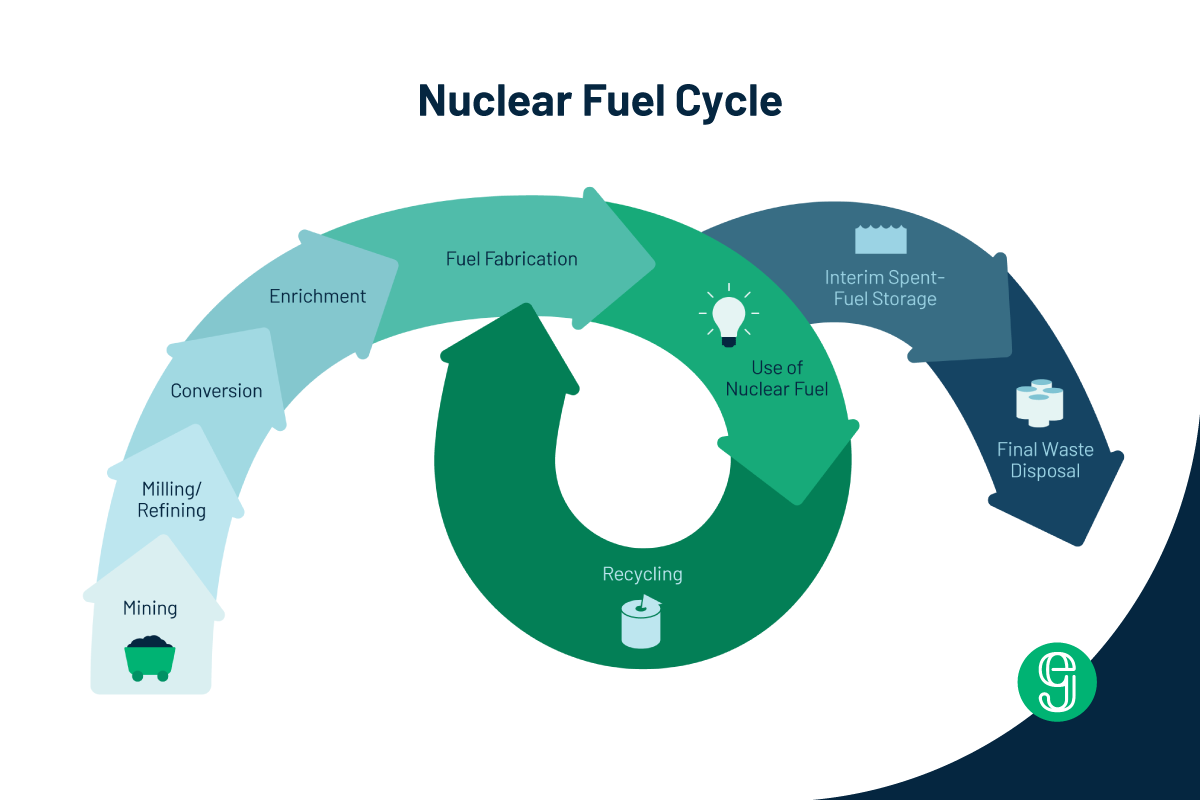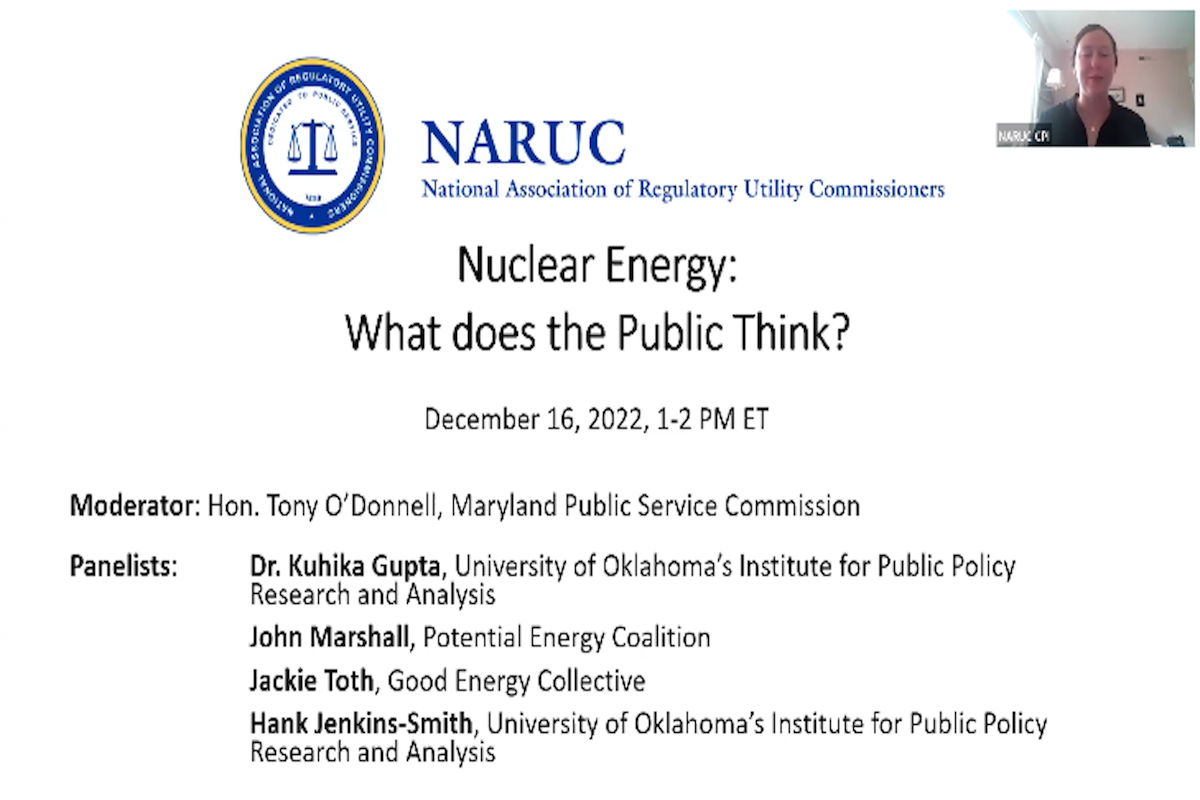To align the nuclear sector with the broader Justice40 initiative, federal policies should center communities and address past injustices

Collage by Liz Vernon
The Justice40 Initiative is a part of an Executive Order that requires 40% of the benefit of federal spending on climate and energy go to disadvantaged communities. We propose a suite of actions to be taken by the Department of Energy’s Office of Nuclear Energy (DOE-NE) to fulfill the mandate of the Administration’s Justice40 Initiative as it applies to nuclear energy. Below we detail the key programmatic focus areas needed for the Office of Nuclear Energy to meet this critical mandate.
To align with the goals of Justice40, US nuclear energy policies must center the needs of communities and take significant steps towards environmentally just processes and outcomes. These policies signal a commitment on the part of the US government to understand and meaningfully address past injustices perpetuated by the nuclear sector while working in parallel to ensure just and equitable adoption of the technology going forward.
We recommend funding and support for DOE-NE to implement four major efforts to align the nuclear sector with the broader Justice40 initiative:
- Include communities impacted by legacy weapons work as frontline communities;
- Advance a trans-disciplinary research agenda and build a more diverse nuclear energy workforce through investment in research, education, and training;
- Redesign the United States’ approach to nuclear waste management; and
- Center community needs and equitable consultation processes in the deployment of new nuclear energy technologies in the fight against the climate crisis.
1. Include Nuclear Legacy Communities in the Justice40 Initiative
A prerequisite to the implementation of the Justice40 Initiative is a clear understanding of the specific harms, inequities, and cumulative impacts to people and places from all energy technologies. For nuclear energy, that includes communities that have been impacted by legacy nuclear work, both by military and civilian federal programs. We recommend the following actions to support this effort:
- Track progress of implementation of Justice40 goals to be included in the annual Environmental Justice Scorecard established by Executive Order 14008 and communicate publicly about the program and its impacts.
- Formally specify that all communities, populations, and places that have been impacted by legacy weapons, fuel cycle, and waste activities qualify as 'disadvantaged communities' within the meaning of Section 223 of Executive Order 14008 and are therefore eligible to receive the benefits of the Justice40 rule.
- Identify potential metrics to track environmental justice in the nuclear supply chain and demonstration projects.
- Include environmental justice, jobs, and community outreach as key metrics in future funding evaluation.
- Coordinate across agencies and offices engaging with Tribal Nations on the completed and ongoing cleanup of nuclear weapons, fuel cycle, and waste activities, including the Department of Energy’s Offices of Environmental Management and Tribal Energy, the Nuclear Regulatory Commission, the Department of Interior’s Office of Indian Energy and Economic Development, and the Environmental Protection Agency’s Office of Environmental Justice.
- Coordinate across agencies and offices responsible for legacy aspects of uranium mining, milling, processing, fabrication, and waste disposal to identify the status of different cleanup efforts and communities in need of additional support, and propose future pathways for providing that support.
2. Advance a Trans-disciplinary Agenda and Build a More Diverse Nuclear Workforce
A central pillar in advancing equity and justice in the nuclear field is to build a more diverse nuclear workforce. For the nuclear sector to evolve and innovate to meet complex societal challenges, the incoming workforce will need to represent a broader range of experiences and educational backgrounds and reflect the diversity of the communities they are serving. For the nuclear sector to develop the strategies and skillsets it needs to implement environmental and social justice principles into its program mission, a multi-pronged approach is needed:
- Begin tracking key demographic data across the nuclear workforce across all areas of the sector and publish an annual report.
- Directly fund social science and humanities research at the intersection of society and nuclear technology, including via university consortia, across a diversity of disciplines including anthropology, economics, geography, history, law, politics, communications, art and design, psychology, sociology, and science and technology studies.
- Invest in deepening our understanding of social and environmental justice aspects of nuclear energy technology governance and reintegrate findings into future work.
- Provide funding for students and researchers in the humanities and social sciences and to increase diversity in academic nuclear engineering and related departments.
- Coordinate with the National Science Foundation and other science funding agencies to align grantmaking efforts.
3. Redesign a Just and Equitable US Nuclear Waste Management Strategy
Another essential action to improve equity and justice in the nuclear energy sector is revisiting the nation’s nuclear waste management plan to foreground principles of equity and respect towards community desires in interim storage and repository siting processes. After the cancellation of the Yucca Mountain Repository project, the Obama Administration’s Blue Ribbon Commission on America’s Nuclear Future outlined recommendations on how to move forward with the country’s accumulating commercial nuclear waste; many of those findings were corroborated and expanded upon by a recent report from Columbia’s Center on Global Energy Policy. The recommendations need to be updated and implemented in a community-centered way to explicitly incorporate principles of environmental and social justice into the national radioactive waste management strategy. To achieve this, we recommend the following actions:
- As part of the recommended trans-disciplinary research agenda above, support a focused effort, under the auspices of a university consortium, to redesign a national commercial nuclear waste management program.
- Support graduate student and postdoctoral fellowships to train researchers in a breadth of disciplines to tackle the nuclear waste management issue around a framework of equity and environmental justice.
- Center the needs and views of affected communities in creating equitable community siting process for both interim storage and potential long-term geologic repositories and in shaping the governance structure of the Blue Ribbon Commission’s recommendation to create an independent organization to implement the process.
- Report back to Congress to inform potential legislative action, and report out on any additional policy changes or support needed for further implementation.
4. Set the Stage for Equitable Advanced Nuclear Deployment
Another crucial dimension in addressing climate injustices include the deployment of low-carbon technologies such as advanced nuclear reactors. Nuclear power plants create high-quality jobs—often union jobs—in addition to carbon-free electricity. Smaller, scalable advanced technologies open the door for more communities to have access to this technology and its associated benefits. DOE-NE will need to develop a clear vision for how to support the deployment of advanced nuclear reactor technologies in a just, equitable, and community-centered way. In order to achieve this, we recommend the following actions:
- Include Justice40 considerations for future nuclear fuel cycle work and other advanced nuclear supply chain investments made by the federal government.
- Design an open application process and provide grants and technical resources directly to communities, tribes, municipalities, cooperatives, local nonprofits, economic development organizations, universities, and other groups for activities supporting the responsible and equitable deployment of nuclear reactors including the following:
– Community-led restorative justice efforts
– Adaptive reuse of nuclear brownfield sites
– Engagement, education, and capacity building for new nuclear energy projects
– Consultation and feasibility studies for communities interested in hosting demonstration projects and very early adoption of advanced nuclear technologies
– Community-led energy systems design processes
– Consultation and feasibility studies for replacing retiring nuclear and fossil plants with advanced nuclear plants, in coordination with other DOE offices where appropriate
– Social-scientific studies to support learning from implementation processes of the current Advanced Reactor Demonstration Program (ARDP) to inform future advanced reactor projects
- Engage utilities to help connect them with communities who are interested candidates for deployment and support them through a responsible and equitable siting process.
The Office of Nuclear Energy already has the mandate from the Biden Administration to focus on nuclear justice. Including legacy weapons communities in their Justice40 work, redesigning the nuclear waste program, ramping up spending to expand the workforce and research focus beyond engineering, and providing financial support directly to communities to address both historical challenges and new opportunities will serve as a foundation and indispensable start towards a new approach of centering principles of equity and justice in nuclear energy technology governance.
In a forthcoming memo, we plan to address the need to fully fund the cleanup of legacy uranium mining and other nuclear remediation efforts across the federal government.















































.png)























.png)






%252520(1200%252520%2525C3%252597%252520800%252520px).png)







